calsfoundation@cals.org
Owensville (Saline County)
Owensville is an unincorporated rural community in Dyer Township of Saline County, located along Arkansas State Highway 5, approximately seventeen miles west of Benton (Saline County) and eighteen miles east of Hot Springs (Garland County). The community takes its name from James Monroe Owen, an early pioneer and the first postmaster.
Early settlers to the area farmed and hunted the rich lands along the Saline River and eastern Ouachita Mountains. In 1827–1828, James Monroe Owen, son of Collegeville (Saline County) founder Ezra Owen and uncle of “boy martyr of the Confederacy” David Owen Dodd, settled in what would become Dyer Township. As more settlers arrived, a post office was established and named Owensville, and James M. Owen became the first postmaster. One of the earliest families to arrive in the area was the Dyer family, in whose honor the township was named. Charles Dyer and sons Given, Hassary, John, and Charles came to Saline County from Kentucky in 1835. They purchased lands along the Middle and Alum Forks of the Saline River and began farming. The elder Dyer served during the 1836 Indian Wars in Company B, First Arkansas Mounted Gunmen, Arkansas Militia, a Saline County company in that regiment. It saw service along Arkansas’s western border with the Indian Territory and at Forts Towson and Gibson. During the Civil War, many of the sons of these men served primarily in Confederate forces, with a few serving in Union units.
Early economic efforts centered on farming, hunting, and trapping. By 1860, Dyer Township had three doctors, two school teachers, two blacksmith shops, two grist mills, a stone turner, and a wagon maker. After the destruction of the Civil War, the area returned to its agricultural pursuits but, with the growing demands for lumber, soon began taking advantage of the vast amounts of timber available. In 1882, Dr. William Sampson Davis moved to the community to practice medicine. (He was the nephew of Sampson Lay, whose great-grandson, Herman Warden Lay, started the Lay’s potato chip company). A small open-pit mining operation registered as the Marlar Mine was open from 1935 to 1943, pursuing high-quality quartz.
On August 12, 1927, the Owensville Baptist Church, consisting of ten members, organized, using a brush arbor structure. Land was donated in 1928 by W. H. James for a permanent church structure, which was dedicated June 5, 1930. For its first twenty years, the church met bi-monthly due to availability of circuit-riding preachers, reaching full-time service in 1948, which continues in the twenty-first century. On February 6, 1953, it was briefly incorporated as the city of Owensville, with Lexa Davis Cook elected as the first and only mayor. After the city council meetings ceased, the incorporation was dissolved by the state.
Owensville remains a rural community with timber as the only major industry in the area. The western land region of Owensville now makes up the eastern portion of the gated community of Hot Springs Village (Garland and Saline Counties) and provides a number of stores and amenities for that community along Highway 9. Kara’s Packing Company, most commonly known as Kara’s Grocery and Meats, was started by John Kara in 1972. It is famous for its polish sausages, meats, and sandwiches. Many residents continue farming pursuits or obtain employment in nearby Benton, Little Rock (Pulaski County), or Hot Springs.
For additional information:
“Rubicon, Arkansas.” The Saline 3 (December 1988): 181.
Torvestad, Ginny. “Where in the World is Rubicon, Arkansas.” Benton Courier, August 5, 1980, p. 2.
Anthony Rushing
Benton, Arkansas
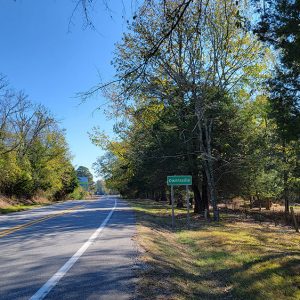 Entering Owensville
Entering Owensville 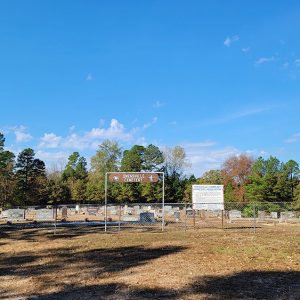 Owensville Cemetery
Owensville Cemetery 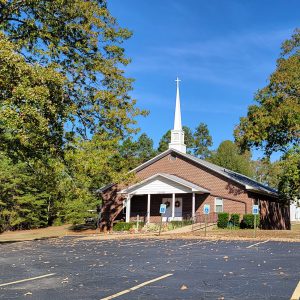 Owensville Church
Owensville Church 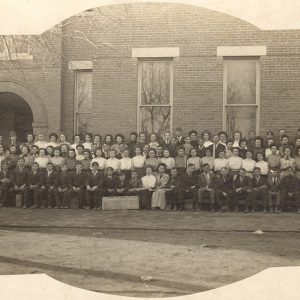 Owensville High School
Owensville High School 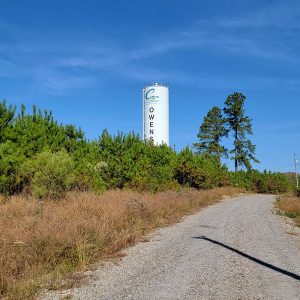 Owensville Water Tower
Owensville Water Tower 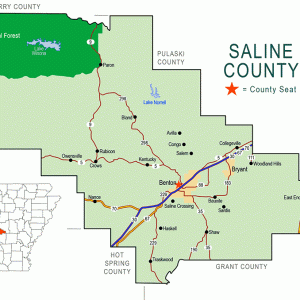 Saline County Map
Saline County Map 



Comments
No comments on this entry yet.